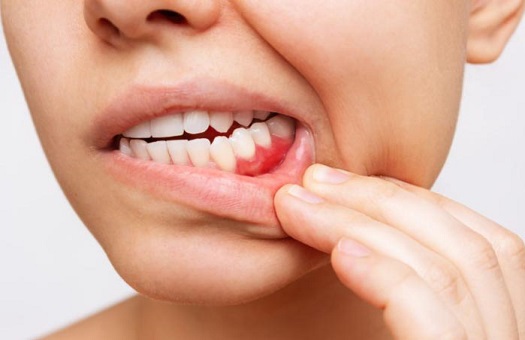Nikhil Prasad Fact checked by:Thailand Medical News Team Jul 31, 2024 1 year, 6 months, 3 weeks, 6 days, 19 hours, 34 minutes ago
Thailand Dental News: Researchers from Austria have made significant strides in the fight against gum disease with the discovery that N-chlorotaurine (NCT), a naturally occurring antiseptic, can effectively combat bacteria associated with periodontal diseases. This
Thailand Dental News report delves into the study's key findings and potential implications for dental health.
 N-Chlorotaurine Shows Promise Against Gum Disease
Understanding the Problem: Periodontal Pathogens
N-Chlorotaurine Shows Promise Against Gum Disease
Understanding the Problem: Periodontal Pathogens
Periodontal diseases, such as gingivitis, periodontitis, and peri-implantitis, are primarily caused by bacteria in dental plaque. These bacteria form biofilms on teeth and dental implants, leading to inflammation and tissue destruction. In severe cases, periodontal diseases can contribute to systemic health issues, including cardiovascular disease, diabetes, and even Alzheimer's disease.
What is N-Chlorotaurine?
N-chlorotaurine is a mild antiseptic formed in the human body during inflammation. It is produced when hypochlorous acid, a substance released by white blood cells, reacts with taurine, an amino acid. Unlike many synthetic antiseptics, NCT is well-tolerated by human tissues, making it a promising candidate for treating infections without significant side effects.
The Study: Key Findings
Researchers from the Medical University of Innsbruck-Austria and other institutions conducted a comprehensive study to evaluate the effectiveness of NCT against common periodontal pathogens. The study involved testing the bactericidal activity of NCT on both planktonic (free-floating) bacteria and biofilms grown on dental implant screws.
-Bactericidal Activity Against Planktonic Bacteria
The study revealed that NCT is highly effective against several strains of periodontal bacteria, including Streptococcus sanguinis, Streptococcus salivarius, Streptococcus oralis, Streptococcus cristatus, Rothia aeria, and Capnocytophaga ochracea. At a concentration of 1%, NCT reduced the bacterial count to undetectable levels within 10 to 20 minutes at 37°C.
-Combatting Biofilms
Biofilms pose a significant challenge in dental health as they are more resistant to treatment compared to planktonic bacteria. The study found that NCT could also effectively kill bacteria in biofilms. When biofilms were allowed to form on dental implant screws, NCT demonstrated significant bactericidal activity. For instance, biofilms of streptococci were eradicated within 30 minutes of exposure to NCT.
How Does NCT Work?
NCT acts by disrupting bacterial cell walls and membranes, leading to the inactivation and death of the bacteria. It is effective against a broad spectrum of pathogens, including bacteria, viruses, fungi, and protozoa, without the risk of resistance development that plagues many antibiotics.
Implications for Dental Health
The findings suggest that NCT co
uld be a valuable tool in preventing and treating periodontal diseases. Its ability to kill both planktonic and biofilm-forming bacteria makes it particularly useful for maintaining oral hygiene and protecting dental implants. Moreover, the mild nature of NCT ensures it does not harm the beneficial bacteria in the oral microbiome, which is crucial for overall oral health.
Future Directions
While the study shows promising results, further research is needed to evaluate the clinical efficacy of NCT in real-world settings. Future studies could involve clinical trials to assess the effectiveness of NCT mouthwashes or gels in reducing periodontal inflammation and preventing disease progression.
Conclusion
The discovery of NCT's potent bactericidal activity against periodontal pathogens offers hope for better management of gum diseases. With its broad-spectrum activity and high tolerability, NCT could become a staple in dental care routines, helping to maintain oral health and prevent systemic complications associated with periodontal diseases.
The study findings were published in the peer-reviewed International Journal of Molecular Sciences.
https://www.mdpi.com/1422-0067/25/15/8357
For the latest
Thailand Dental News, keep on logging to Thailand Medical News.
Read Also:
https://www.thailandmedical.news/news/covid-19-news-sars-cov-2-structural-proteins-affects-oral-health-by-causing-periodontal-fibrosis-via-deregulating-mitochondrial-b-oxidation
https://www.thailandmedical.news/news/more-studies-are-showing-that-covid-19-can-cause-various-oral-health-issues-and-even-damage-your-gums-and-teeth
